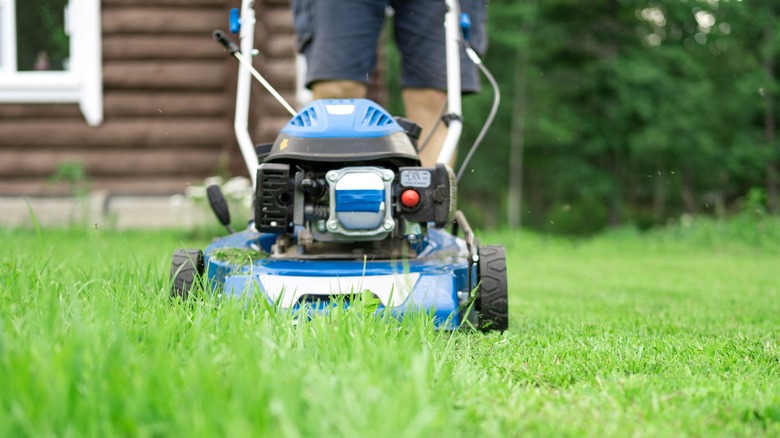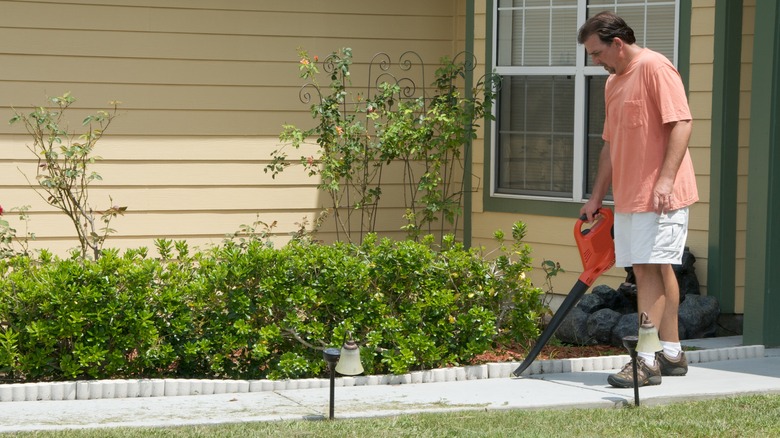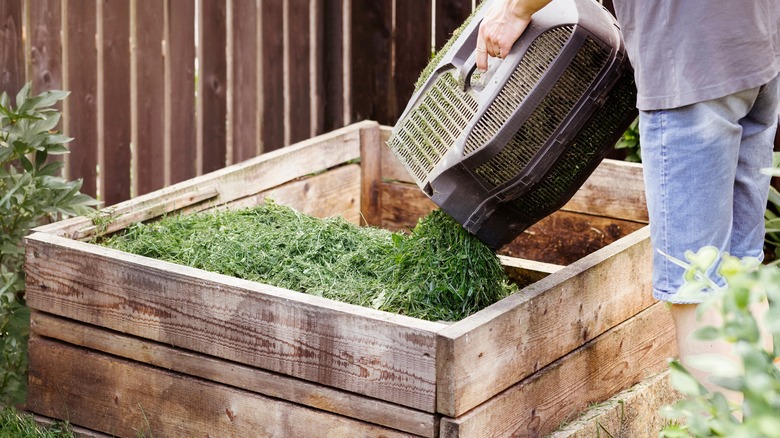Why You Should Never Blow Yard Waste Into The Street
So there you are with your perfectly manicured lawn looking as fresh and green as could be and you are thinking that your job is over. But, wait, you still have to deal with all those grass clippings on your lawn or fallen leaves left over. While it might seem simple and harmless to blow those grass clippings into the street for the sweepers and drains to deal with, this act is where real trouble can begin.
When you blow or sweep those grass clippings and leaves into the street, you unknowingly send them on a swift journey right into gutters and storm drains. Contrary to popular belief, storm drains aren't magical portals that whisk away unwanted materials to a land beyond our worries. Instead, they feed directly into pipes and drainage systems. When anything other than rain and snowmelt enters these drains, it creates a recipe for disaster in our waterways and creeks.
Improper disposal of yard waste, including grass clippings and leaves, poses a real threat to both water quality and drainage systems, particularly during storms. Just imagine what happens when your street gets a ton of rain all at once, and that accumulation starts trying to pass through a storm drainage system that is now cluttered with all sorts of debris. This blockage prevents the natural flow of water, causing it to back up and potentially flood backyards, neighborhoods, or nearby streams.
What happens when you throw yard waste into the street?
Of course, it doesn't end there. As yard waste decomposes in stormwater drainage systems, it adds a hefty dose of nutrients — particularly nitrogen and phosphorus — into the water sources that those gutters drain out into, leading to an over-fertilization that waterways simply cannot handle. This nutrient overload fuels the growth of algae blooms, which scarf down oxygen, leaving aquatic life gasping. The U.S. Environmental Protection Agency highlights that phosphorus in storm water runoff is one of the primary villains behind these water quality issues.
But there is more. All those fertilizers, pesticides, and herbicides that you lovingly applied to care for your lawn do not just wash away. When dragged into the waterways with yard waste, they become harmful to aquatic life. These chemicals have a double-edged destructiveness: while making your fescue flourish, they wreak havoc in once-healthy waters, turning thriving ecosystems into chemical battlegrounds.
Even beyond the flooding and chemical threats, leaves and yard debris on the streets are stealthy evils. Wet grass, especially when tucked into the eaves and gutters of streets, transforms into a slick surface that becomes downright hazardous to bike riders and motorcyclists. In fact, wet grass can cause motorcycles to easily lose tire traction, and if the rider isn't able to adjust their speed or move out of the way, they can find themselves in a major predicament.
What should you do with grass clippings instead?
Before you get into the bad habit of blowing yard waste into the street, focus on repurposing your lawn clippings instead. Start by returning those leaves and grass clippings to your yard, where it can actually be a big benefit for your grass and flowers. They can act as a natural fertilizer, enriching your soil while reducing the need for chemical treatments. If you prefer the precision of a machine, use a mulching blade to efficiently recycle leaves and grass, giving back essential nutrients to your lawn.
Composting is another simple yet highly effective solution for yard waste. Gather all your leaves, grass, and other green waste and create your own DIY compost bin at home. Mix them with brown materials like leaves and food scraps, aerate often, and hydrate occasionally. The result is a nutrient-rich compost that can become your garden's best friend while keeping these materials out of increasingly burdened landfills.
Finally, if you don't want to compost or leave your yard waste in your yard, you can always bag it up and toss it into the recycling or take it to your local dump. These options, though a bit more work, are still far better than any of the options that can happen if you don't take said time and effort.


